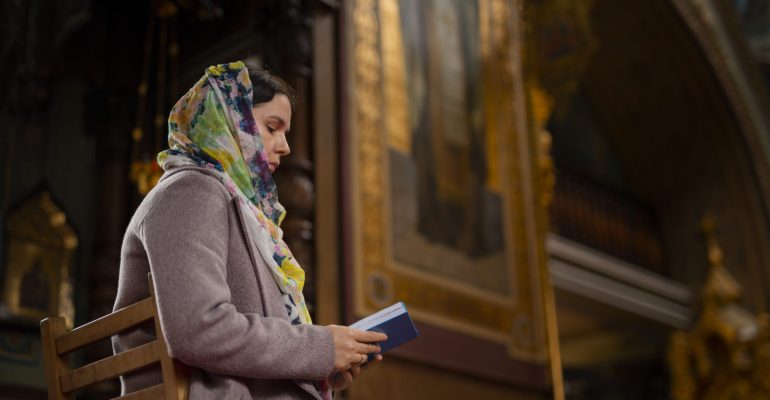Seeking Forgiveness through Quranic Recitation: A Spiritual Journey
March 14, 2024 2025-08-13 11:17Seeking Forgiveness through Quranic Recitation: A Spiritual Journey
Seeking Forgiveness through Quranic Recitation: A Spiritual Journey
Seeking Forgiveness through Quranic Recitation
In the sacred verses of the Quran, seeking forgiveness is a recurring theme. The act of repentance and seeking pardon from Allah (SWT) holds immense significance for believers. Whether you’re burdened by past mistakes or simply striving for spiritual growth, the Quran provides guidance on how to seek forgiveness sincerely.
The Essence of Surah Al-Ghafir
1. Divine Mercy and Compassion
Surah Al-Ghafir opens with the Arabic phrase “Ha-Mim” (حم), which serves as a unique signature for this chapter. These mysterious letters appear in several other surahs, and their precise meaning remains known only to Allah. Their presence, however, invites us to ponder the hidden depths of the Quran.
The surah then unfolds, emphasizing Allah’s infinite mercy. It reminds us that no matter how grave our sins, His forgiveness is readily available. The very name “Al-Ghafir” (The Forgiver) encapsulates this divine attribute. When we recite this surah, we invoke the One who pardons, wipes away transgressions, and heals our souls.
2. The Story of Pharaoh and Moses
Embedded within Surah Al-Ghafir is the riveting account of Pharaoh and Moses. Their confrontation serves as a stark reminder of human arrogance and divine justice. Pharaoh, the tyrant who defied Allah, faced the consequences of his obstinacy. Moses, the chosen prophet, exemplified unwavering faith and humility.
As we read about Pharaoh’s downfall, we recognize the futility of pride and the inevitability of accountability. Allah’s mercy extends even to those who have strayed far from the path. When we seek forgiveness, we echo Moses’ plea for guidance and salvation.
3. The Power of Repentance
Surah Al-Ghafir underscores the power of repentance. It encourages us to turn sincerely to Allah, acknowledging our faults and seeking His pardon. The verse (40:55) states:
“So be patient; indeed, the promise of Allah is truth. And ask forgiveness for your sin and exalt [ Allah ] with praise of your Lord in the evening and the morning.”
This verse invites us to cultivate patience, seek forgiveness, and engage in constant remembrance of Allah. Our repentance becomes a bridge connecting us to His boundless compassion.
Practical Steps: Reciting Surah Al-Ghafir
- Understanding the Arabic Text: Take time to understand the Arabic verses. Reflect on their meanings, and let them penetrate your heart.
- Intention and Sincerity: Before reciting, set your intention. Approach Allah with sincerity, knowing that He listens to every whisper of your soul.
- Quiet Contemplation: As you recite, pause and contemplate. Imagine the weight of your sins lifting, replaced by divine light and forgiveness.
- Consistent Practice: Make Surah Al-Ghafir a regular part of your supplications. Whether in solitude or congregational prayers, let its words resonate within you.
Remember, seeking forgiveness is not a sign of weakness; it’s an act of courage. Allah’s mercy awaits those who humbly seek it. So, when you recite Surah Al-Ghafir, envision your heart opening to His grace, and know that redemption is within reach.
May our journey of seeking forgiveness be guided by Surah Al-Ghafir, and may our hearts find solace in the embrace of the Most Merciful.
1. Surah Al-Baqarah (2:222): Allah’s Love for the Repentant
In this verse, Allah’s love extends to those who consistently turn to Him in repentance. Imagine a compassionate parent who embraces their child despite repeated mistakes. Allah’s love for the repentant is boundless. When we seek forgiveness, we draw closer to His affectionate gaze. The act of purification—both inward and outward—becomes a means to earn His favor.
2. Surah At-Tahrim (66:8): Repentance Opens the Gates of Paradise
This verse addresses believers directly. It invites us to repent sincerely, knowing that Allah’s mercy transcends our misdeeds. Picture a vast garden with rivers flowing beneath lush trees. This paradise awaits those who humbly seek forgiveness. Our Lord, in His generosity, removes the burden of our sins, replacing them with the promise of eternal bliss. Repentance becomes our passport to paradise.
3. Surah An-Nisa (4:110): A Compassionate Forgiver
Here, Allah reveals His forgiving nature. Imagine stumbling in darkness, yet finding a guiding light. Our wrongs, whether small or significant, don’t disqualify us from His mercy. The door to forgiveness remains wide open. When we seek Allah’s pardon, we step into a realm where our past no longer defines us. We become recipients of His boundless compassion.
Practical Steps: Seeking Forgiveness
- Self-Reflection: Pause and reflect on your actions. Acknowledge your mistakes without self-condemnation. Allah knows our weaknesses; our honesty matters more than perfection.
- Turn to Allah: Repentance isn’t a formal ritual; it’s a heartfelt conversation with our Creator. Speak to Him sincerely, even if your words stumble. He hears every whisper.
- Consistent Effort: Like a traveler on a winding path, persistently seek forgiveness. Don’t despair when you stumble; rise and continue. Allah’s mercy awaits the persistent seeker.
- Gratitude: As you seek forgiveness, express gratitude. Grateful hearts attract divine blessings. Remember the countless times Allah forgave you, and let gratitude fuel your repentance.
In summary, the Quran invites us to a journey of redemption. Seek forgiveness with hope, for Allah’s mercy is vaster than the oceans. May our hearts resonate with these verses, and may our repentance lead us to eternal gardens of peace
The Essence of Istighfar
1. A Humble Plea
Imagine standing before the throne of the Most Merciful, your heart heavy with the weight of your deeds. In that moment, you utter the words: “Astaghfirullah al-‘Adheem wa atubu ilayh.” These words encapsulate humility, vulnerability, and hope. You acknowledge your imperfections, seeking refuge in Allah’s boundless compassion.
2. The Prophet’s Example
The Prophet Muhammad (peace be upon him) exemplified the Istighfar prayer. His days were woven with these sacred syllables—spoken not out of mere habit, but with a heart aflame. Picture him, the beloved of Allah, seeking forgiveness despite his purity. His humility teaches us that no soul is exempt from the need for repentance.
3. The Turning Point
“Istighfar” means more than mere verbal repetition. It’s a turning—a pivot of the soul. When you say, “I seek forgiveness,” you pivot away from darkness toward light. You acknowledge your flaws, but you also recognize Allah’s readiness to forgive. The door is open; the threshold awaits your step.
Practical Steps: Embracing Istighfar
- Sincerity: Istighfar isn’t a magical formula; it’s a conversation. Speak to Allah sincerely. Imagine His attentive ear, the One who knows your innermost thoughts.
- Consistency: Like a gentle rain that nourishes parched earth, make Istighfar a consistent practice. Whether in solitude or amidst a bustling crowd, whisper it. Let it become the rhythm of your days.
- Gratitude: As you seek forgiveness, express gratitude. Grateful hearts attract divine blessings. Remember the countless times Allah forgave you, and let gratitude fuel your repentance.
- Hope: Istighfar isn’t a desperate plea; it’s a hopeful cry. Trust that Allah’s mercy surpasses your sins. He loves the repentant heart. Hope is the sail that carries your Istighfar to His throne.
The Essence of the Dua for Forgiveness
1. A Cry of Contrition
Imagine standing in the quiet of the night, the weight of your deeds pressing upon your soul. You raise your hands, palms upturned, and say: “Rabbana zalamna anfusana wa in lam taghfir lana wa tarhamna lana kunanna minal-khasireen.” These words encapsulate vulnerability, remorse, and hope. You acknowledge your wrongs, seeking refuge in Allah’s compassion.
2. Our Lord, We Have Wronged Ourselves
The dua begins with humility. It doesn’t deflect blame or seek excuses. Instead, it admits our own wrongdoing. We recognize that our actions—intentional or inadvertent—have caused harm. The path to forgiveness begins with this honest admission.
3. The Mercy Equation
The dua continues: “And if You do not forgive us and have mercy upon us, we will surely be among the losers.” Here lies the essence. We acknowledge our dependence on Allah’s mercy. It’s not a transaction; it’s a plea. Imagine a traveler lost in a desert, parched and weary. The oasis of forgiveness awaits, but we must seek it.
Practical Steps: Embracing the Dua
- Sincerity: When you recite this dua, mean every syllable. Imagine Allah’s presence, His gaze upon you. Your honesty matters more than eloquence.
- Hope: The dua isn’t a desperate cry; it’s a hopeful plea. Trust that Allah’s mercy surpasses your sins. He loves the repentant heart. Hope is the sail that carries your dua to His throne.
- Consistency: Make this dua a companion. Whisper it in the quiet hours, in the bustling streets, and during your prostration. Let it become the rhythm of your days.
- Reflection: As you seek forgiveness, reflect on your actions. Imagine the scales of justice tipping in your favor as Allah’s mercy outweighs your mistakes.
Conclusion: A Journey of Redemption
In the sacred verses of the Quran, we find solace, guidance, and a path toward forgiveness. Seeking pardon from Allah (SWT) is not a sign of weakness; it is an act of courage—an acknowledgment of our humanity and our need for divine mercy.
As we explored Surah Al-Ghafir (The Forgiver), we discovered its timeless wisdom. It invites us to turn away from arrogance and toward humility. It narrates the stories of Pharaoh and Moses, reminding us that even the mightiest can fall, and the repentant can rise. And within its verses lies the promise of forgiveness—a promise that transcends our faults.
The Istighfar prayer—“Astaghfirullah al-‘Adheem wa atubu ilayh”—becomes our lifeline. It bridges the gap between our imperfections and Allah’s boundless compassion. The Prophet Muhammad (peace be upon him) recited it frequently, teaching us that seeking forgiveness is a continuous journey.
And when our hearts overflow with remorse, we utter the dua: “Rabbana zalamna anfusana wa in lam taghfir lana wa tarhamna lana kunanna minal-khasireen.” Our Lord, we have wronged ourselves, but we seek Your forgiveness. We trust in Your mercy, for without it, we are indeed among the losers.
Quraneclass.com: Guiding the Seekers
In this quest for forgiveness, Quraneclass.com stands as a beacon. It provides a nurturing platform for new Muslims in the USA and Muslims across the nation. Here, qualified teachers impart the wisdom of the Quran, unravel its mysteries, and guide hearts toward repentance.
Whether you’re a beginner or a seasoned seeker, Quraneclass.com offers:
-
Interactive Learning: Engage in live sessions with knowledgeable instructors who patiently guide you through the Quranic verses.
-
Personalized Approach: Tailored lessons cater to your pace, ensuring a deep understanding of the sacred text.
-
Community Connection: Join a community of fellow learners, share insights, and grow together.
This article was written by Quraneclass.com, a platform committed to nurturing souls, fostering spiritual growth, and illuminating the path of forgiveness. May your journey be blessed, and may Allah’s mercy envelop you always









